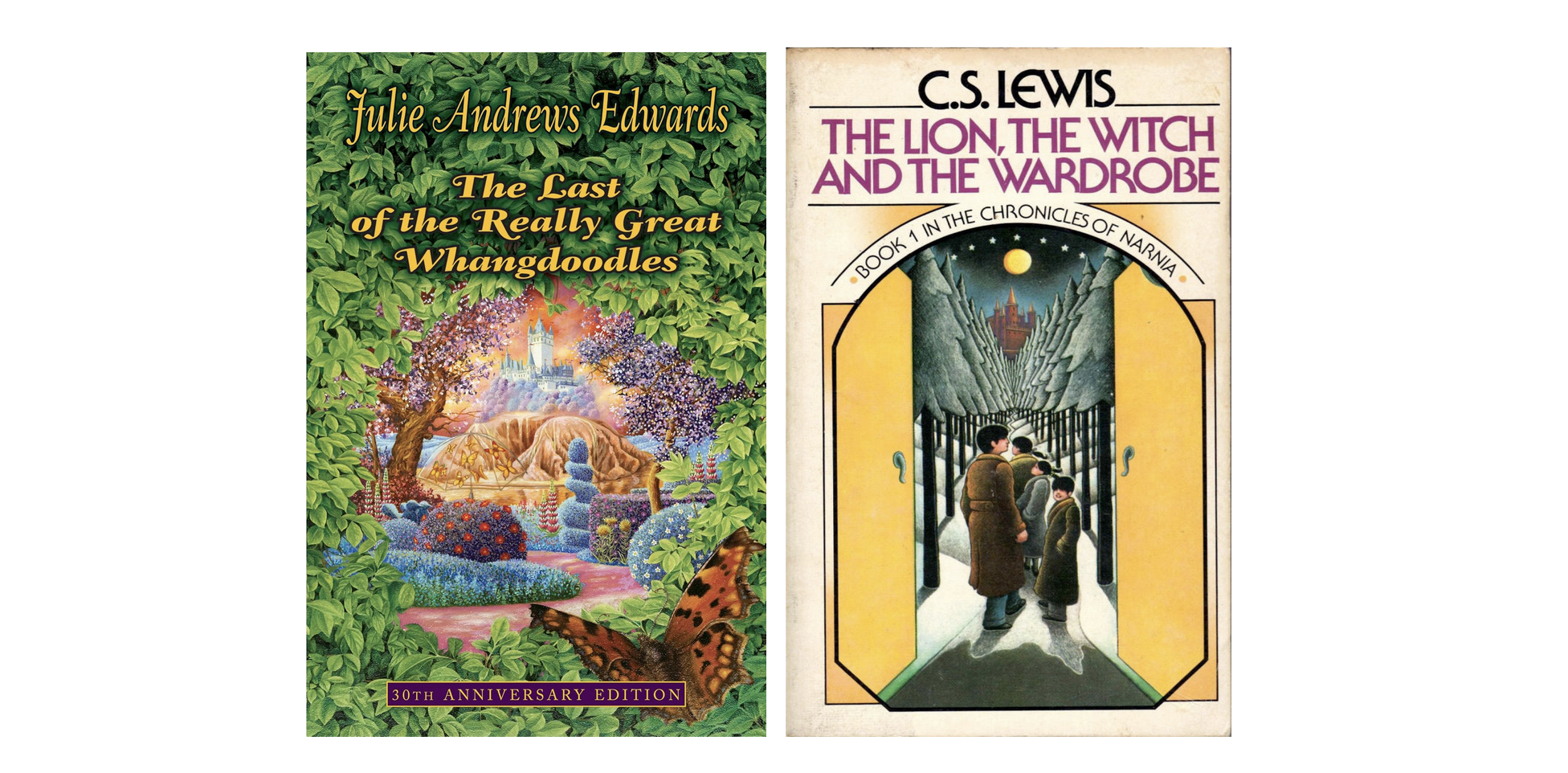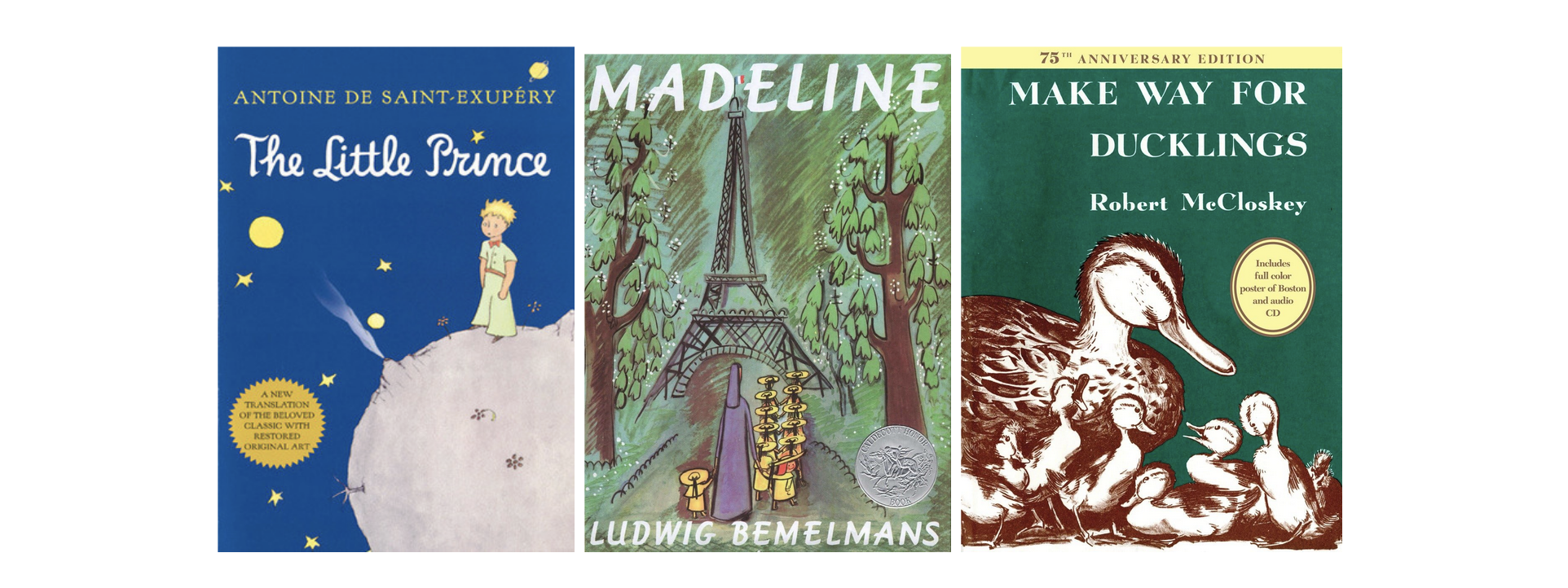The Voice Box
In My Bookish Era
By Emilie Martin, NPU Center for Parent Voice

The first book I remember describing as my favorite was The Last of the Really Great Whangdoodles by Julie Edwards (you might know her better as Julie Andrews). I remember sitting in a circle while my fifth-grade teacher read to us, eyes wide as I listened to the story of Ben, Tom and Lindy and their travels to Whangdoodleland. We were all old enough to read on our own, but this was a time when we could ignore all the other distractions that come with being 10 and 11 years old, and we could focus solely on the story being told. Maybe Ms. Cerame just had a way of reading aloud that truly captivated us, or maybe the story was just that good. It doesn’t really matter now. I just know that I was hooked on the adventure in those pages.

When I was eight, I read The Lion, the Witch, and the Wardrobe for the first time. I spent a weekend sneaking off to check the closets and wardrobes at my Nana’s house, looking for my portal to Narnia. I’m still disappointed I didn’t find one.
I’ve always been a reader. If my mom was here, she would tell you that I was reading before I talked in full sentences. I don’t know how true that is. But I do know that I was the only first grader who was allowed to check out chapter books from the school library, that I tested at a higher grade level than my classmates so, during reading lessons, I was allowed to sit quietly in the reading loft with a book of my choice.
From the time my sister and I were born – probably before that, to be honest – my mother read to us. She read to us in English, she read to us in French, she read classic novels and children’s books, and she brought the characters to life for us.
I can still hear the whisper of her French when she would quote Antoine de Saint-Exupéry’s The Little Prince: “Toutes les grandes personnes ont d’abord été des enfants (mais peu d’entre elles s’en souviennent).” (“All grown-ups were once children (but few of them remember it.”)
The way she would gasp as she acted out the scene from Madeline when Miss Clavel wakes up suddenly and said, “Something is not right!”
And the pure joy in her voice as she recited the names of Mr. and Mrs. Mallard’s offspring in Make Way for Ducklings (Jack, Kack, Lack, Mack, Nack, Ouack, Pack and Quack).

I took a book with me everywhere and I read at every opportunity. On the bus, on the subway, while walking (which is a talent thankyouverymuch). I still pout a little when I remember my Nana taking away my books at lunchtime. Then I laugh a little when I remember her scolding my favorite uncle for setting the “bad example” of reading at the table during a meal. The library was my favorite place and I was there three or four times a week, checking out new books while having excited discussions with the librarians about what I’d loved or hated in the books I’d just returned. I was insatiable. I couldn’t get enough of books written by authors who were – I was positive – as magical as the worlds and characters they created.
On more than one occasion, as a child, my mom would find me wrapped in a blanket, curled up under my bedroom window, using the glow of the streetlight to read well past my bedtime. At some point, she gave up trying to get me to sleep at a decent hour and just gave me a flashlight so I would at least stay in bed. And, in high school, when I would skip school, I went to the library to – you guessed it – read in peace.
It would have been easy for my mom to be frustrated with my choice to bury my head in a novel instead of my schoolwork, but she never was. Sure, she lectured me about taking my studies seriously, and I did try to be better. But it never took long for me to be drawn back into some fictional world or another, and really, how could she be mad when my love of reading was her fault to begin with?
As I got older, my mom and I shared a love for some of the same authors, and we were a book club of two, passing books between us and having quick chats about them when we’d both finished them. She had a love of historical fiction, set in England or Ireland or Scotland, while I’ve always been partial to more contemporary fiction. But we always agreed on mystery writers, and were always excited to read the latest by Patricia Cornwell, or Jonathan or Faye Kellerman. These were authors whose series we’d read from the beginning, whose characters we’d watched develop and grow on the pages in front of us, and that we followed them as if they were our friends.
A few months after she passed, one of our favorite authors announced a new book in a series we’d been reading since the first book, and the grief hit hard when I realized she would never get to read it. And I would never get to read it after she did, taking her hand-me-down hardcover with pages that were, inevitably, covered with stains from the meals she ate while reading, because of course I got that habit from her, too. (The reading during meals, not the stains.) (Okay, maybe the stains, too.)
It wasn’t until I was an adult that I realized why my mother was such a proponent of reading, and why she was so adamant that my sister and I become lovers of books and words. Because the library was free and was the only way a single mother on welfare could give her kids the world. A lot of worlds, to be honest. With books, my mom was able to give us adventure, and I lived for the journeys I took alongside the characters. I still do. And I couldn’t be more grateful to her for fostering my love of reading, cultivating my curiosity, and encouraging the wild, restless spirit of my twenties that too often gave her gray hairs.
But, what I didn’t really understand as a kid (and into my twenties), is that adventure isn’t a place. It’s a feeling.
As a kid, adventure meant going. It meant doing. It was exploring woods and climbing trees, pretending I was in Narnia or some other magical land. As I’ve gotten older, I’ve learned that magic can be found anywhere if you know how to look for it. And adventure comes in the most unexpected forms sometimes – in books, in friendships, in love. So, maybe, Narnia isn’t real. But in the pages of those C.S. Lewis books, I learned how to fight battles, how to stand up for what was right, how to explore fearlessly, how to love. And I learned that, when all hope is lost, you have to keep going.
“Courage, dear heart.”
